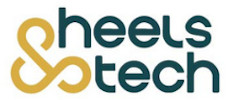The Future of HR: Trends and Predictions for the Next Decade
April 27, 2024 2024-04-27 9:51The Future of HR: Trends and Predictions for the Next Decade
Welcome on board! According to Workable, “Human Resources (HR) focuses on managing an organisation’s most valuable asset: its employees. HR professionals ensure employees have the necessary resources for their tasks and foster a positive work environment.
They handle various responsibilities, from recruiting and compliance to benefits and training”. It’s quite a lot to take in, but did you notice that everything revolves around the employees and ways to make them better and function at an optimal state? This has been the responsibility of HR so far and will always be. However, the ways of achieving this particular goal and the metrics by which it is measured- the betterment of the employees is quickly changing and if HR will live up to its purpose, it has to adapt just as quickly.
Everyone’s experience with HR is unique but as I have grown over the years I have discovered that HR isn’t an exactly friendly or exciting term for staff. I really hope you have had a different experience thus arriving at a different conclusion. However, whether or not that is the case, if HR is going to remain relevant in the coming years and do what they are paid to do, something has to change and that’s what this article is all about. A switch, no a change of sides from focus on processes to focus on people, in this case people who probably did not like you much hitherto. Let’s go.
HR Trends and Predictions for the Next Decade
1. Shift from Focus on Processes to Focus on Employees:
Well, if you have ever been employed and gone through the onboarding process with the HR you should know what I am talking about when I say ONBOARDING! It is not an easy task – the papers needed and the protocols to be completed before you finally feel like you are fully a member of the organization.
Well, it just so happens that the HR will have to ease up on all those things and double down on the employees. By this I mean what they can do for the employees and not what the employees should do for them. The goal should be to forge such relationships and create such a work experience that increases employee engagement. Employee engagement changes your employees’ attitudes for the better and consequently impacts your business significantly (including revenue).
Things are changing everyday and employees have to regularly upskill, keep up with the trend and bring their best attitudes to work since you have more competition than you are aware of. If the HR doesn’t make all these efforts worth it, who will?
2. Hybrid Work and Flexible Working Schedules:
A hybrid work model is designed to accommodate both in-office and remote work styles, in order to better support your employees.
HR will have to adapt to the changing work conditions. Flexible working schedules that are not typical will have to be accepted because that’s what talents are beginning to request for and you are the one who needs them.
Remote work has also become the way to go, I can assure you that many employers today have never met some of their most resourceful employees in person. Why? Because they don’t need to, they only need results, not a face to admire. This is a current HR trend making a big wave but has rather been difficult for the traditional companies and HR teams to manoeuvre.
3. A Diverse and Inclusive Workforce:
Well HR compliance policies of nations are beginning to take this seriously, you can’t really discriminate as easily as you used to can you? Well, with more power and options in the hands of talents, you probably can’t keep up with the tradition of having only people from your village whose roots you know well handle key positions. If you will have any edge at all in the battle for talents, inclusion is the way to go.
Diversity and Inclusion is simply an organisational framework that promotes fair treatment of all peoples and groups. This is one sure way to attract top talents, and maximise human resources by forgoing stereotypes.
Another side to this is the fact that talents also love inclusive spaces and this in itself drives what HR should be after – employee engagement. In a workplace where I am the only one that looks like me and I am clearly being treated as such (I mean all the downsides), I am most likely not going to perform at my best nor be at my peak.
4. An AGILE HR:
Change, speedy change is the new mantra. Where it concerns adopting new ways of doing things especially related to technology, HR has to be on their toes. AI and its endless possibilities is the new normal. This includes AI generated insights from application videos of prospects, assessment of cultural fit using such cues, performance assessment computation of employees etc. The use of technology for the automation of repetitive tasks so that HR can focus on bettering employee experience should not be neglected.
Chatbots are a relatively new experience that could triple the productiveness of HR if it is used to garner feedback and source as much information as is necessary for optimal production. If your HR is not yet using this, it’s a sign to buckle up. HR has to be up and doing, at least for the next decade. The time is gone when onboarding, letting a staff go and skill development used to be all that concerned them, they have a lot more on their plate today.
5. Data Driven Decision Making:
Before the current reality, can you think about any department more rigid than HR? Well I can’t. Marketers have to change their strategies constantly, people in sales also have to produce results so there’s no time for dilly dallying, etc. However, HR? They have done roughly the same thing for years. Onboarding, the same process; firing, the same process. Skill development? The same process, this has been the case for years on end.
Well, all that has to change. HR should become adept at making decisions with data if they and their organisations will stay relevant. Data Analytics has found its way into all endeavours, medicine inclusive and HR is not left behind because it drives results. In every responsibility of the HR; employee development programmes, employee benefits, activities to drive employee engagement; insights from data should be used. All these should not be done blindly by a particularly experienced HR professional that never asks anyone anything and just works behind a computer screen all the time.
Data is the new mantra. Now that you are curious about the waves technology is making in HR check out other posts on our blog for HR growth.




